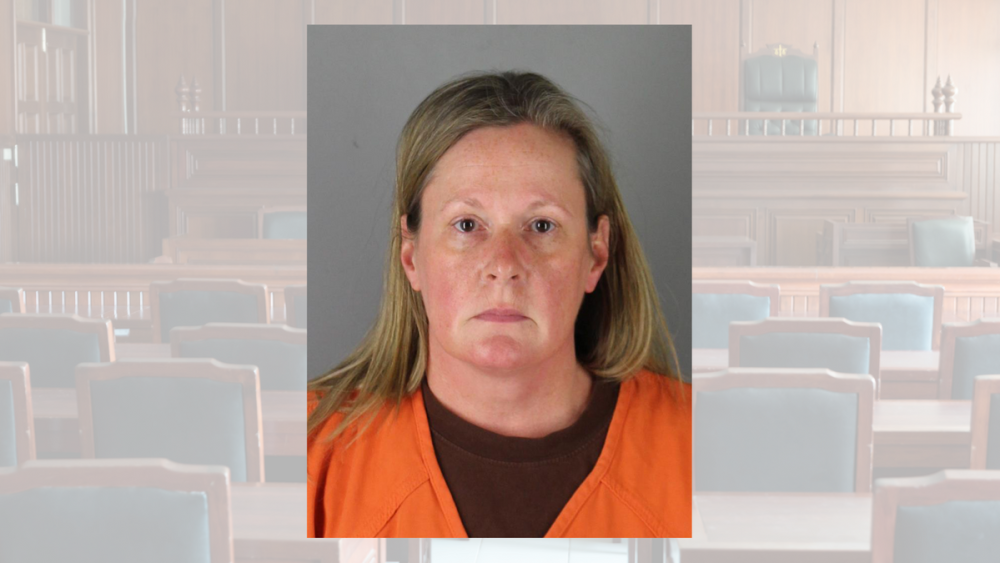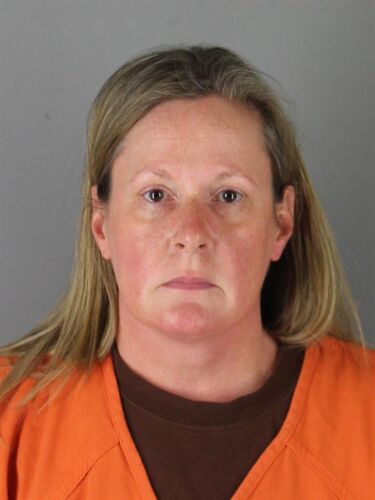By Rochelle Olson
Star Tribune
HENNEPIN COUNTY, Minn. — Former Brooklyn Center police officer Kimberly Potter’s second-degree manslaughter trial in the death of Daunte Wright won’t be broadcast, a Hennepin County judge said Thursday.
Judge Regina Chu’s ruling sided with Potter, who doesn’t want the proceedings to be broadcast. The judge’s order also moved up the trial’s start date to Nov. 30 from Dec. 6.
State Attorney General Keith Ellison, whose office is prosecuting Potter, had requested that cameras and audio equipment be allowed in the courtroom for the trial.
Potter fatally shot Wright during a traffic stop on April 11 in the final days of the heavily publicized and livestreamed trial of former Minneapolis officer Derek Chauvin for the murder of George Floyd. Like Chauvin, Wright will be tried in the Hennepin County Government Center in downtown Minneapolis, but Chu’s order makes it clear that the two trials will be significantly different.
Police said Potter, a 26-year veteran of the Brooklyn Center Police Department, mistook her gun for her Taser when she shot Wright, a 20-year-old Black man, during a traffic stop. The shooting led to days of turbulent protests during the Chauvin trial.
Chu’s five-page memorandum cited differences in the circumstances of the trials.
In Chauvin’s case, the defendant didn’t object to cameras in the courtroom. Prosecutors objected, but Judge Peter Cahill overruled them, allowing cameras because of the global interest in the case, space limitations in the courtroom and the need for social distancing because of the COVID-19 pandemic.
Change may be coming. Extensive praise for the broadcasting operation and the access provided to a global audience during the Chauvin trial prompted the state Supreme Court to order another look into widespread use of cameras in Minnesota courtrooms. But the study group isn’t expected to report back to the high court until July 1, 2022.
Until then, the current rule remains in place that cameras are allowed only if all parties agree, and Potter did not.
“What you’re seeing with this order is a return to the status quo and, unfortunately, in Minnesota, if all parties don’t consent to cameras, the public doesn’t get them,” said attorney Leita Walker, who works with a media coalition that includes the Star Tribune.
In her order, Chu also noted that when Cahill issued his order in November 2020, he was anticipating the trajectory of the pandemic, which was expected to worsen through the start of the trial in March 2021.
She said Cahill also faced security concerns with “thousands” likely gathering at the courthouse daily seeking access to Chauvin’s trial or for protests.
Livestreaming, even over the prosecution’s objection, allowed the Hennepin County Government Center to be closed to all but essential staff and jurors for the Chauvin trial, thus ensuring their safety, while “affording the public the opportunity to view the trial in what surely is one of the most highly-publicized cases in Minnesota history without unduly jeopardizing public health during the COVID-19 pandemic,” Chu wrote.
In contrast, the pandemic has ebbed as the Potter trial date approaches, the judge wrote. Chu also said she doesn’t expect the courthouse to be closed during the Potter trial. She also said the public’s and media needs for access to the trial can be met by using overflow courtrooms in the Government Center with closed-circuit feeds from the courtroom.
In opposing cameras in the Potter case, her defense attorneys Paul Engh and Earl Gray raised concerns about the prospect of vandalism to the homes of witnesses.
The lawyers also said the right to a fair trial belongs to Potter and “due process requires that the accused receive trial by an impartial jury free from outside influences,” and there is no constitutional right to a livestreamed trial. To the contrary, trials in Minnesota can be broadcast only with the consent of all parties, the lawyers wrote.
©2021 StarTribune. Visit startribune.com. Distributed by Tribune Content Agency, LLC.



